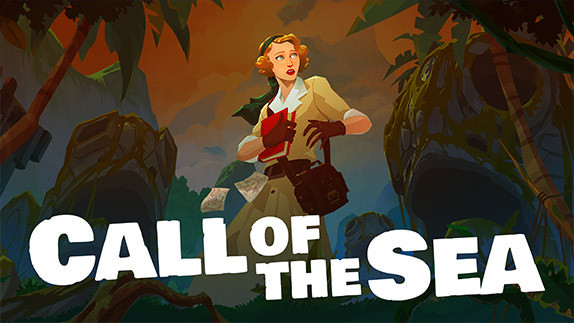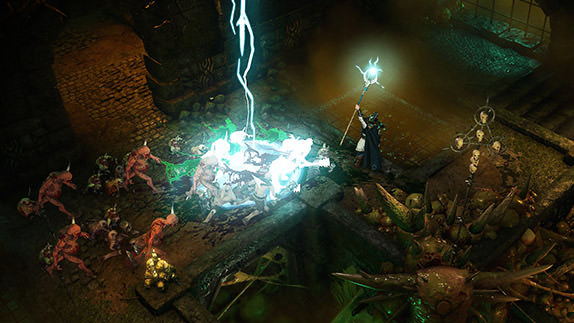Vampyr Review

 By Kevin Mitchell | June 4, 2018
By Kevin Mitchell | June 4, 2018
An atmospheric role-playing game from the studio behind Life is Strange and Remember Me, Vampyr takes place in 1918 London, during the Spanish Flu Pandemic. Rats fester throughout the darkened alleyways, scurrying across the cobblestone streets, feasting on the human remains littering the streets of the once great city. As a doctor and recently turned vampire, you attempt to understand your newly gained affliction while clinging to the remaining threads of your humanity by fulfilling your obligations as a member of society and practitioner of medicine. Society is on the brink of death, thanks to the outbreak and the horrors that are lurking in the streets, but your choices can bring about humanity's salvation or ultimate destruction.
Vampyr is a narrative-driven title, placing exploration, investigation, and social mechanics in the forefront. The combat in the game is thoroughly enjoyable, albeit slightly cumbersome/clunky at times, focusing on your need to balance offensive output with dodging or parrying enemy attacks due to the limited amount of stamina available. It feels almost Witcher-esque, requiring proper timing to combine physical attacks with vampiric abilities; button mashing won't get you far. Foes can quickly take you down if you aren't careful, sending you back to the nether realm. As mentioned, all physical movements, whether offensive or defensive, share the same stamina pool. At the start, you are a freshly turned vampire anyway, so being overly cautious fits with the narrative being told as you are generally outnumbered in altercations.
The opening sequence adequately takes you through each of the core gameplay components, and it isn't long before you learn your first ability. As the prominent physician Jonathan Reid, you have to improve two key levels: power and mesmerize. Power correlates with your combat abilities, and unlocking/upgrading your skills will raise your power level respectively. On the other hand, mesmerize is a secret vampiric ability to get inside the mind of mortals, controlling their actions. This is used when giving in to your animal instincts to guide a poor soul to a secluded location to feast upon their flesh. If your mesmerize level is too low, you won't be able to drink the blood of the citizens of London; however, if you plan on playing the friendly neighborhood doctor/vampire, this mechanic can be largely ignored. Although it is not something you can improve on your own, it appears to be based on narrative progression.
Blood serves as the primary source of your power, and it acts as your currency to earn new active/passive skills or to upgrade each one. For my first offensive combat ability, I opted for Shadow Mist: a ranged attack that places a cloud of shadows around a target's feet or yourself. After a short time, it explodes into sharp spines causing substantial damage to its target, but it can be easily avoided if a target moves to a new location swiftly enough. Within each skill is the ability to upgrade further; however, all active skills outside of the three ultimates include two branching paths. Skills are ranked based on the blood cost to trigger, cooldown timer, the range of the attack, and damage type/output.
You can have a total of four active skills at any given moment, tied to the shoulder buttons on a controller by default (I played the game using an Xbox One controller). Once you reach level 10, you have the opportunity of choosing an ultimate skill. These devastating attacks can boil the blood of your enemies until they violently explode, cast a deadly shadow vortex that inflicts an insane amount of damage, or unleash the beast lurking beneath your skin, teleporting you between nearby foes as you lose control over your actions. The passive skills that you can unlock are quite basic as you might expect, increasing your total health, stamina, and blood, as well as increasing the amount of ammunition and serums you can carry. The final passive ability is tied to improving your biting ability, which is used on a stunned foe to drain their blood so that you can trigger your active skills.
Autophagy serves as a vital vampiric ability to use your own blood to regenerate health instantly. Most importantly, it also recovers your maximum health, which can be decreased from taking aggravated damage from fire. Serums which you'll craft can also be used to gain health, blood, and stamina back when in a pinch. If you find yourself in dire need of blood, rats will provide a tiny bit of nourishment, if you are not disgusted by the concept of putting the disease-infected rodents in your mouth. One thing that I wish was included was a preview video showing the various moves in action to get a better understanding of how they are used.
You can equip a different weapon in the main hand and off-hand slot, although the more massive two-handed weapons will take up both. You can quickly swap between two different sets, which means you can use a swift and nimble sword for weaker foes, and switch to a heavier, more damage-dealing two-handed weapon for "boss" type encounters. The variety of melee weapons you can find or purchase is quite significant, ranging from machetes, swords, bludgeons, hacksaws, scythes, etc. However, Vampyr also includes ranged weapons, something that the opposition will use against you frequently. These weapons are set to the off-hand slot, causing a fixed amount of stun damage. If you drain the stun meter on an enemy, they will be exposed, letting you bite them to replenish your blood supply, also giving you a precious few seconds to recover.
It wouldn't be an RPG if each weapon performed the same, and you'll have to figure out which weapon types work best for your playstyle. I love using two-handed weapons that can cause stun for most engagements but switch to a weaker sword for rogue Skals (deformed offspring of lesser vampires) that can recover blood on each hit, as well as an off-hand weapon that recovers blood as well. While I lose the ability to stun, I make up for it with a rapid influx of blood and use of my vampire powers. Oddly enough, you can't swing and hit downed enemies and are forced to wait until they stand up to continue fighting using physical attacks.
All enemies have different resistances to melee and ranged damage, as well as blood and shadow-based skills. While in your blood-sensing mode, a character card appears, revealing their resistance levels, giving you valuable insight on how to tackle the encounter. Other vampires aren't your only concern, as you'll have to contend with various creatures of the night, including the Guard of Priwen, a group of professional vampire hunters that patrol the streets of London. If you happen to rest at a hideout, you can expect your foes to reappear, ensuring you never feel safe while traveling.
Using your senses, you can track fresh blood, something that will significantly assist in your investigations (both the main narrative and side-quests). When this happens, the game world becomes monochromatic except for the vibrant red coloring of blood splattered about London. It's an elegant visual treatment that works within the confines of the game lore. As you explore the winding cobblestone streets, you'll come across hideouts or safe zones, letting you spend your blood (experience points) while resting, or you can spend your time crafting new items at a workbench. Here, you use materials found throughout the game to create medical treatments for healing sick citizens, serums to boost your own abilities, and customize your weapons through upgrades.
Conversing with citizens is key to being a successful doctor, which also means you can have better success during investigations. You may discover a hint, revealing a secret about themselves or someone related to them. This, in turn, improves the quality of their blood, increasing the amount of experience gained if you drain them of their blood, and you'll also uncover further background information regarding the citizens and how they live.
You are free to kill or spare any of the citizens you come across in Vampyr, which has been one of the core mechanics talked about since the initial reveal. While drinking their blood will allow you to evolve (level up) and upgrade your abilities, there is a lot more to Vampyr than merely being a leech (a derogatory term for vampires you will hear repeatedly). Curing illnesses and learning more about them improves the quality of blood, and while that may benefit their health, it also means you'll be quenching your thirst with even more blood. Each of the four central districts in the game is ranked based on the health of the citizens that live within. As the health of a region declines, you'll notice that life begins to deteriorate, shop prices increase, and more people are likely to get terminally sick. If the vitals of a district drop too far, it will be lost forever. Side-quests will no longer be available, and you'll have to contend with the powerful creatures that now claim the area as their new home and breeding grounds. This doesn't mean that you can't progress in the game's narrative, as regardless of your actions, you'll still be able to complete the story, but you'll receive a fitting ending for your efforts.
Many buildings and doors remain closed in Vampyr, turning some of the areas in London into simple corridors. There was a missed opportunity to expand upon the teleportation skill to reach new heights, outside of the handful of ledge/scaffolding locations. Even if these locations only contained crafting materials, it would breathe life into the world. With no fast travel system, this would help drive players to explore the city, instead of following the next quest marker. The HUD elements can be removed, making it more imperative that you follow conversations and read all the letters and notes you find to understand where you should go next.
Simply Put
Although Vampyr's combat system is thoroughly satisfying, it's the dark atmosphere and narrative that genuinely make the game a must-have. Your choices define the experience, altering a world full of discovery and intrigue all around you. Do you give in to your blight and feast upon the weak and unworthy inhabitants of London, or do you become their salvation? It should take you anywhere from 20-30 hours to complete the narrative, but if you want to see all of the possible endings, you'll have to play through multiple times, altering your choices and decisions regarding the lives of the citizens.
Note: Vampyr was reviewed on PC. A digital copy of the game was provided by the publisher/developer.




